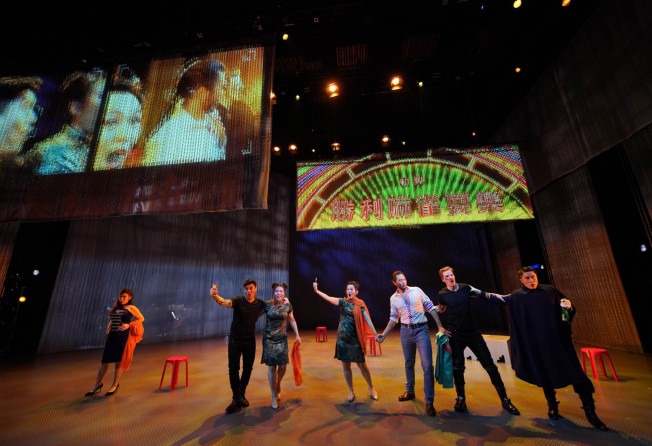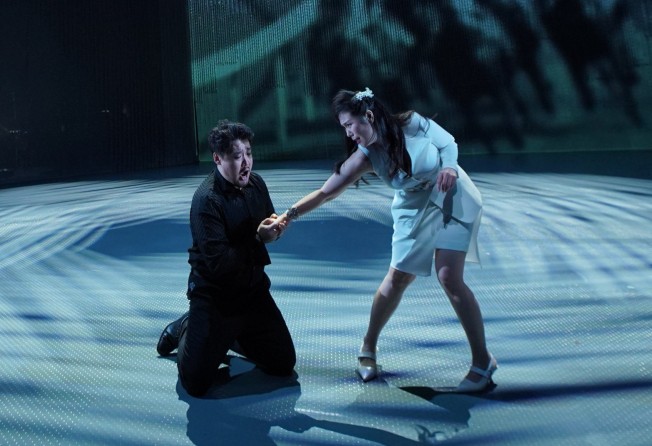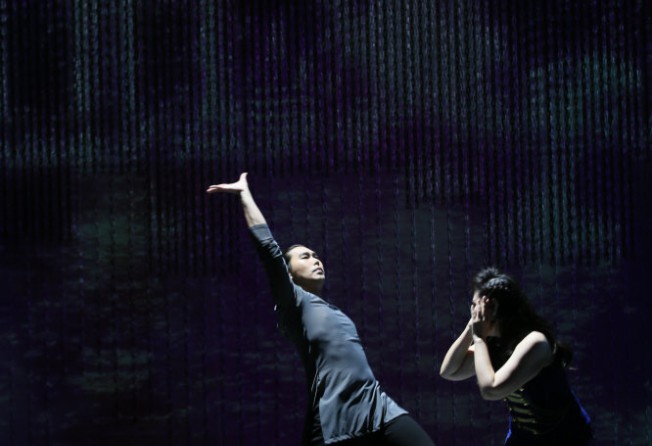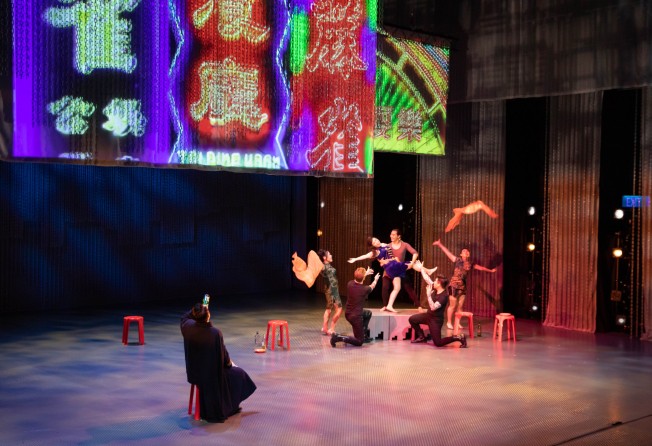
Carmen: Hong Kong is a fun adaptation of the classic opera that does away with original ending ‘fetishising violence against women’
- More Than Musical’s version of Georges Bizet’s opera set the Sevillian tale in a futuristic Hong Kong, and replaced all the bullfighting with horse racing
- The removal of key scenes and characters resulted in some awkward breaks but, all things considered, the result was entertaining and featured strong performances

Just imagine: a Carmen short on castanets, devoid of dashing bullfighters and fiery gypsies, set in a futuristic Hong Kong. Pardon the pun, but it’s no bull.
Carmen: Hong Kong, an adaptation of Georges Bizet’s opéra comique by More Than Musical (MTM), turned Escamillo into a star jockey down at the Happy Valley races, Don José into a security guard at an upscale nightclub in the city’s Wan Chai district, and Carmen herself into a waitress with dodgy friends in the triad underworld.
MTM’s mission to condense Western operas into more accessible, small-scale productions means key scenes and characters from Bizet’s version were cut. That resulted in some awkward breaks in the narrative flow, which removed tension and (at times) left the audience confused.
However, all things considered, it was an entertaining adaptation that featured some solid vocal performances and finely honed instrumental work across the board.

One of the interesting and more effective twists to this familiar tale was the omission of Micaela by director Jennifer Williams. Micaela’s role essentially highlights Carmen’s lewd behaviour and, in turn, justifies her murder by Don José.
By replacing her with a lone dancer – choreographed and danced with unassuming fluidity by Hong Kong-born Kenneth Hui Ka-chun – Williams cleverly created a quasi-shadow figure for Carmen, one who embodied her fears and aspirations.
South Korean mezzo-soprano Kim Moon-jin proved an admirable Carmen. Kim charmed with her seductive lilt in the beloved Habanera and impressed with focused diction and clarity in Act I, albeit in restrained fashion.
An unclear entry at the beginning of Act II was a fleeting hiccup, and she soon seemed vocally in the zone at dive bar Lillas Pastias. Carmen’s companions Frasquita and Mercédès, sung by soprano Colette Lam Wing-wing and mezzo-soprano Anna Chan Pui-shan, clearly enjoyed their respective roles as they grew in confidence and lapped up the flirtatious fun.
And there were plenty of comical moments. For example, as Carmen began to lose interest in José after his release from prison, she made her exasperation clear when his attention was focused on his phone and the importance of catching the last MTR train.

As a side note, given Japanese bass Hidenori Inoue’s strong physical stature and the suave huskiness of his voice, he might (optically) have been more convincing as Escamillo the toreador than Escamillo the jockey – but, admittedly, a bullfight at Happy Valley Racecourse on Hong Kong Island would have been a real stretch.
Metal chains featured prominently on stage, used as props by the characters to suggest the shackles of fate and to cover the overhead digital screens to create fleeting images of Hong Kong.
Audience chatter at one point in Act III may well have signalled concern when a black leather-cladded Carmen and her crew of triad bandits secretly met on a secluded outer island, surrounded by chains.
Both Stefan Gordon (Le Dancaire) and Dennis Lau (Le Remendado) made fine smugglers, even if their respective baritone and tenor voices seemed muted in some stage positions. Bass-baritone Frankie Fung Yat-hei was aptly commanding as Zuniga.
However, it was South Korean tenor Lee Bum-joo that stole the show with his embodiment of Don José. He was vocally self-assured throughout, projected sound generously and was very much in his element with a powerful and moving rendition of the much-loved Flower Song in Act II.
Once listeners adjusted to the intimacy of MTM’s small-scale musical force, the quality of the tight-knit ensemble, led by Italian music and artistic director Elio Orciuolo, was evident. The purposeful and unanimous string playing from violinist Vivian Shen Ting-chia and cellist Bernard Chan Chun-hin was never forced and – along with partners Jay Liu Fong-yip on flute, percussionist Rainbow Lau Wai-hung and pianist Ming Kwong – they balanced the cast of singers with bravura.

In this reimagined Carmen, the dramatic aspect of Don José’s fate is noticeably tamer, as Carmen avoids the customary stabbing and José is simply chained and arrested.
Williams said in the programme note that she decided to change “Bizet’s horrific ending fetishising violence against women” and to let Carmen live.
It is a humanist gesture. But does Bizet’s score not demand the gravity of a murder? After all, José’s gradual decline is signalled, act by act, from honest soldier (or security guard) to deserter, vagabond and finally murderer by the music itself. This alternative ending is anti-climatic by comparison.
Still, transposing Carmen from Seville to Hong Kong does make this nearly 150-year-old story more immediate and relatable. Apparently, the young students who saw the dress rehearsal had loved it.
Undoubtedly, contemporary adaptations will continue to challenge, flourish and coexist alongside traditional opera performances.
Carmen: Hong Kong, The Box, Freespace, West Kowloon. Reviewed July 31.